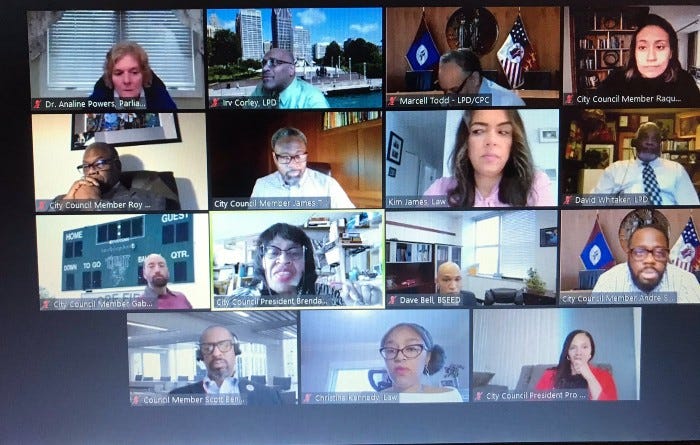
(WWJ) Recreational marijuana is now one step closer to hitting retail shelves in the city of Detroit.
The Detroit City Council at a virtual pubic meeting Tuesday unanimously approved a recreational marijuana ordinance that gives preference to legacy residents.
To qualify as a Detroit Legacy Applicants (DLA) a person must live in Detroit for one year at the time of application and meets one of the following:
1 - Lived in Detroit 15 of the past 30 years
2 - Lived in Detroit 13 of last 30 years and is low income
3 - Lived in Detroit 10 of last 30 years and has a substance criminal record.
Under the ordinance, no less than 50% of all licenses granted must be awarded to legacy Detroit residents, and that at least $1 million generated annually from licensing sales be used for social equity initiatives in the city.
The ordinance also allows for designated consumption lounges — something that isn't yet offered elsewhere in the state.
Councilman James Tate, who brought the measure to the table, said the regulations are the product of two years of work "to identify ways to make sure there's success" for Detroiters.
"We've seen around the country where individuals who live in the municipality where the industry is located are frozen out and not having an opportunity to participate," Tate said.
During public comment, WWJ City Beat Reporter Vickie Thomas said an "overwhelming majority" spoke in favor of the ordinance.
"It is very dear to me," said former Detroit Public Schools teacher and nurse who's now in the marijuana business. "We are in support of social equity; we support Black ownership. Blacks in Detroit have been x'ed out of this industry -- 3.5% of Blacks represent this industry total -- so Detroit will be setting the stage for the model of recreational cannabis."
Those in favor also included former Detroit Lions offensive lineman turned entrepreneur Rob Sims, who founded Michigan-based cannabis company Primitive with ex-teammate Calvin Johnson.
"We are looking forward to partnerships with social equity candidates," Sims said. "I'm looking forward to touching more people in the city of Detroit with our medicine."
Detroit Pastor Marvin Winans spoke out against the plan.
He doesn't want to see legal recreational marijuana sold in Detroit at all.
"When we consider what is going on and the deprivation that this is going to cause our city, I'm ashamed of Councilman Tate because we've had these discussions," Winans said.
Tate said he doesn't recall any such discussions with Winans.
After Michigan voters approved the legalization of marijuana in November 2018, the state has slowly eased into commercial sales — with some municipalities opting out, which is allowed under the law.
City of Detroit residents will have the first opportunity to apply for recreational marijuana licenses in April 2021.

